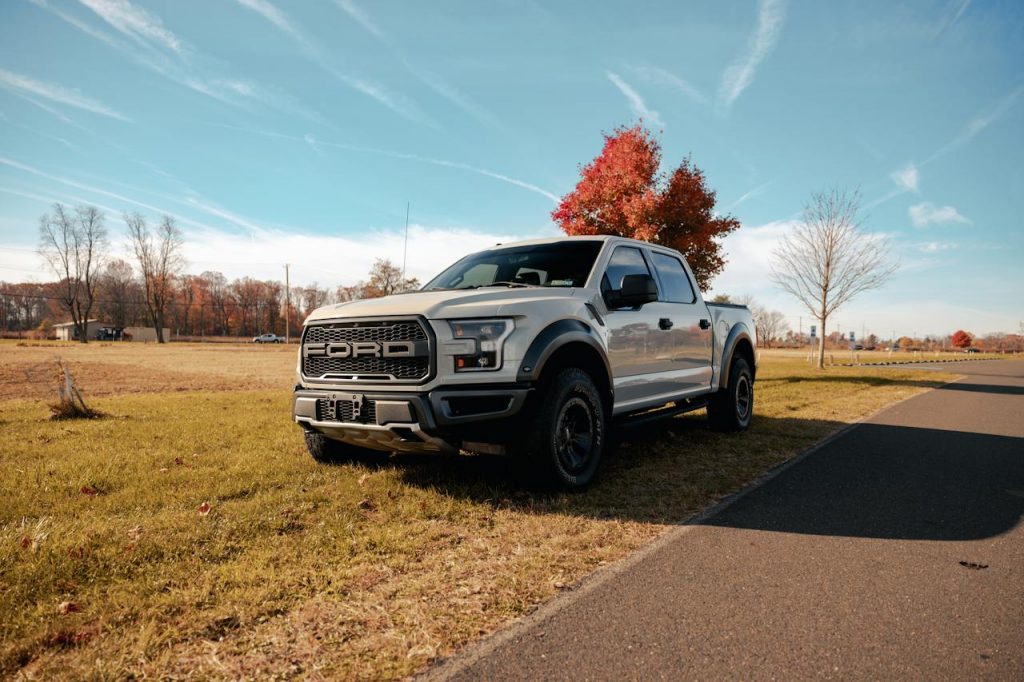The era of hybrid pickup trucks is gaining momentum rapidly. These vehicles blend the traditional robustness and carrying capacity of a pickup with the fuel efficiency and sustainability of a hybrid. The affordable models appeal, proving that economical and environmentally conscious driving aren’t mutually exclusive.
This article delves into the world of budget-friendly hybrid pickups, providing insights for the budget-conscious car enthusiast. It explores various models that balance affordability, performance, and sustainability. So whether you’re a longtime pickup enthusiast or a green-minded motorist looking for a budget-friendly hybrid, this guide aims to help you navigate the exciting terrain of affordable hybrid pickups.
The Rise of Hybrid Pickup Trucks
The advent of hybrid technology in pickup trucks reflects a significant shift in the automotive industry, marrying power and efficiency in a unique blend. This section charts the journey of these groundbreaking vehicles, tracing their evolution and rise to popularity.
Explanation of the shift toward hybrid technology in the pickup truck market
Growing environmental concerns and a broader push towards sustainable practices in the automobile industry largely drive the shift towards hybrid technology in the pickup truck market. While known for power and cargo capacity, traditional pickup trucks are known to be gas guzzlers. With mounting pressure to reduce carbon emissions and improve fuel efficiency, manufacturers have turned to hybrid technology as a viable solution.
This has resulted in developing hybrid pickup trucks that marry traditional models’ power, durability, and load capacity with hybrid vehicles’ environmental benefits and fuel efficiency. Consumers can now access affordable hybrid pickups that meet their performance requirements and align with their environmental consciousness. This shift represents a major step forward in sustainable personal transportation, making pickup trucks a more attractive option for a wider demographic of consumers.
Statistics on the increasing demand for hybrid trucks
Statistics reflect this burgeoning interest as the demand for hybrid trucks rises. According to the Boston Consulting Group, plug-in hybrids (PHEVs) are projected to capture nearly 25% of the pickup truck market in the United States by 2030. This prediction highlights the growing prominence of PHEVs in the automotive industry, especially in a market with a strong demand for pickup trucks.
The increasing consumer awareness about sustainability and the growing affordability of hybrid vehicles drives this trend. Furthermore, hybrid technology advancements consistently improve these vehicles’ performance and fuel efficiency, making them an increasingly competitive choice for consumers. These factors suggest a promising future for the hybrid pickup market, with increasing consumers turning to these vehicles as an economical and environmentally friendly option.
Benefits of Hybrid Pickup Trucks
The advantages of hybrid pickup trucks extend well beyond fuel efficiency and eco-friendliness. They provide several distinct advantages, making them an appealing choice for modern consumers. First and foremost, they offer improved fuel efficiency compared to traditional models. Integrating electric power allows these vehicles to reduce their reliance on gasoline, leading to lower fuel costs for the owner. Simultaneously, this increased efficiency significantly reduces carbon emissions, aligning with global efforts to combat climate change.
Furthermore, the cost savings associated with hybrid pickups extend beyond fuel. Many countries offer incentives such as tax credits and rebates for hybrid vehicle purchases, making these trucks an economically sound choice. Lastly, hybrid pickups do not compromise on power and performance. Advanced hybrid technology allows these vehicles to deliver the robust performance and load capacity expected of traditional pickup trucks, making them versatile for work and play.
Affordability and Budget Considerations
In hybrid pickup trucks, affordability means something other than compromising quality or performance. This section will explore various budget-friendly models in the market, providing an overview of their features, performance, and overall value.
Examination of the factors that make hybrid pickup trucks affordable
The affordability of hybrid pickup trucks can be attributed to several key factors. One of the most prominent is the rapid progression in hybrid technology, which has not only improved the performance of these vehicles but also reduced the cost of production. Advances in battery technology have made them more efficient and cheaper to produce, lowering the overall price of hybrid vehicles.
Government incentives and rebates for purchasing hybrid or electric vehicles have made these trucks more affordable. Many governments worldwide offer tax credits, rebates, or subsidies to encourage the adoption of environmentally friendly vehicles, effectively reducing their purchase price.
Finally, the increasing competition in the hybrid vehicle market is driving manufacturers to offer more cost-effective solutions without compromising performance and quality. This competitive pricing strategy has made hybrid pickups more accessible and affordable for a broader range of consumers.
Comparison of upfront costs, fuel savings, and potential incentives
The evaluation of hybrid pickup trucks can only be completed by examining upfront costs, fuel savings, and potential incentives. An initial investment in a hybrid pickup may be higher than in conventional trucks due to the integrated electric powertrain. However, the long-term fuel savings significantly offset these upfront costs.
A hybrid pickup can cover more miles per gallon of fuel than its conventional counterparts, leading to significant savings over the vehicle’s lifetime. In addition, the growing array of government incentives adds another layer of financial benefits.
Tax credits, rebates, and subsidies can shave thousands off the purchase price, further bridging the gap between the costs of hybrid and conventional trucks. Combined, these factors make hybrid pickups a financially sound choice, providing an attractive blend of performance and efficiency that aligns with the priorities of today’s conscious and savvy consumers.
The Top Affordable Hybrid Pickup Trucks
This section presents a curated list of the top affordable hybrid pickup trucks making waves in the automotive market. Each model balances cost, sustainability, and performance, offering great value for budget-conscious, eco-friendly consumers.
Ford Maverick Hybrid
The Ford Maverick Hybrid stands out as one of the best budget-friendly hybrid models in the market, boasting an impressive blend of performance, efficiency, and affordability. This compact pickup truck has a 2.5-liter four-cylinder hybrid powertrain capable of producing 191 horsepower.
The Maverick Hybrid is not just about power but also fuel efficiency. Ford claims it can achieve a staggering 42 miles per gallon in the city, making it one of the most fuel-efficient trucks on the market. As for capabilities, it has a payload capacity of 1500 lbs and can tow up to 2000 lbs. Key features include an 8-inch touchscreen with Apple CarPlay and Android Auto compatibility, standard Ford Co-Pilot360 safety features, and a flexbed, allowing users to organize the truck bed in various ways.
The Maverick Hybrid starts at an incredibly budget-friendly price of around $24,000, making it an accessible choice for those looking to venture into the world of hybrid pickup trucks. This model’s affordability, performance, and efficiency combination makes it a standout choice for budget-conscious, eco-friendly consumers.
Toyota Tacoma Hybrid
The Toyota Tacoma Hybrid is another budget-friendly hybrid pickup that offers a perfect blend of affordability, performance, and fuel efficiency. Pioneered by a company renowned for its hybrid technology, the Tacoma Hybrid is built upon Toyota’s years of experience creating efficient and reliable vehicles.
Under the hood, the Tacoma Hybrid features a powerful yet efficient engine, offering a balanced mix of performance and fuel economy. On the road, it offers a comfortable ride with responsive handling, making it a practical choice for city driving and off-road adventures. Key features include:
- Toyota’s Safety Sense suite of driver-assistance technologies.
- An infotainment system with Apple CarPlay and Android Auto compatibility.
- A well-appointed interior with quality materials.
The Tacoma Hybrid has a starting price in the mid $35,000 range, offering excellent value for those seeking a capable, efficient, and budget-friendly hybrid pickup. With its robust features and competitive pricing, the Toyota Tacoma Hybrid is a worthy contender in the affordable hybrid pickup truck market.
Chevrolet Silverado 1500 Hybrid
The Chevrolet Silverado 1500 Hybrid is a commendable entry in the affordable hybrid pickup truck market, offering a competitive blend of power, efficiency, and affordability. This model is powered by a hybrid powertrain that combines a V8 engine with an electric assist, delivering robust performance without compromising fuel efficiency.
The Silverado 1500 Hybrid boasts a seamless transition between electric and gasoline power, providing an impressively smooth driving experience. It offers ample towing and payload capacities on the performance front, making it a reliable workhorse for all hauling tasks. Key features include:
- Chevrolet’s suite of advanced safety and driver-assistance technologies.
- An intuitive infotainment system with smartphone integration.
- A spacious, comfortable interior.
As for pricing, the Silverado 1500 Hybrid starts in the mid $20,000 range, offering great value for those seeking a powerful, efficient, and affordable hybrid pickup. With its compelling combination of features, performance, and affordability, the Chevrolet Silverado 1500 Hybrid is an attractive choice for budget-conscious shoppers in the hybrid pickup truck market.
Ownership Costs and Savings
When it comes to ownership of a hybrid pickup truck, it’s essential to consider the total cost, which includes more than just the purchase price. This section will explore the costs of owning a hybrid pickup truck and how potential savings might offset these expenses.
Analysis of the long-term cost of ownership for hybrid pickup trucks
The long-term cost of ownership for hybrid pickup trucks can be evaluated through several key areas, including fuel savings, maintenance costs, insurance, and resale value.
Fuel Savings
One of the most significant advantages of hybrid pickup trucks is their superior fuel efficiency. By combining an electric motor with a conventional engine, hybrids can drastically reduce fuel consumption. Over the vehicle’s lifetime, these savings can amount to a substantial sum, often offsetting the higher initial purchase price of the vehicle.
Maintenance Costs
Regarding maintenance, hybrid pickup trucks are more cost-effective than their fully gas-powered counterparts. The electric motor in a hybrid often takes over at low speeds and when idling, reducing wear and tear on the vehicle’s gasoline engine. Furthermore, features like regenerative braking can significantly increase the lifespan of brake pads and disks, resulting in fewer replacements and lower maintenance costs.
Insurance
Insurance rates for hybrid vehicles can be slightly higher than for traditional vehicles due to their higher upfront cost and potentially higher cost of repairs. However, some insurance companies offer discounts for hybrid vehicles, recognizing their environmental benefits and often lower accident rates.
Resale Value
Initially, hybrid vehicles may depreciate more quickly than conventional vehicles due to the pace of advancements in hybrid technology. However, as these technologies mature and become more widely accepted, the resale value of hybrid vehicles is improving. Moreover, with the growing demand for eco-friendly vehicles, hybrid pickup trucks will likely hold their value well.
Consumer Experiences
The narrative around affordable hybrid pickup trucks wouldn’t be complete without delving into the real-world experiences of consumers who’ve adopted these vehicles. Their testimonials provide invaluable insights into the performance, fuel efficiency, and satisfaction derived from hybrid pickups.
Driving Experience
Owners of affordable hybrid pickup trucks commonly praise these vehicles’ smooth and quiet driving experience. The seamless transition between gasoline and electric power delivers an impressively smooth ride, often surprising first-time hybrid owners. Many drivers also appreciate the responsive handling of these trucks, especially in city driving conditions. Off-road capabilities vary among models, but hybrid pickups perform well in various terrains, further enhancing their appeal.
Fuel Savings
From a fuel economy perspective, consumers often express satisfaction with the savings they achieve with hybrid pickup trucks. The increased miles per gallon compared to conventional trucks results in less frequent trips to the gas station and substantial savings over time. These savings, consumers note, help offset the initial higher cost of investing in a hybrid.
Satisfaction and Value
Overall satisfaction among owners of affordable hybrid pickup trucks is high, with many stating that the benefits – fuel efficiency, performance, and eco-friendliness – far outweigh the initial cost. The added value from government incentives and the long-term cost savings further enhance satisfaction levels. Owners also appreciate the robust features and technologies incorporated into these trucks, offering a comfortable, safe, and enjoyable driving experience.
Minor Concerns
While the overall consumer sentiment is positive, it’s worth noting some minor concerns raised by hybrid truck owners. Despite the long-term savings, the initial investment cost can be a hurdle for some buyers. Concerns about the longevity and replacement costs of hybrid batteries are also mentioned, although advancements in battery technology and extended warranties address most of these concerns.
Government Incentives and Rebates
Government incentives and rebates play a key role in promoting the adoption of hybrid vehicles. This section will explore government programs offering financial incentives to consumers purchasing hybrid pickup trucks.
Overview of available government incentives for hybrid truck buyers
Incentives for hybrid vehicles can take several forms, including tax credits, rebates, and exemptions from certain fees. In the United States, the federal government offers a tax credit for new plug-in electric vehicles, hybrids included, under the Energy Improvement and Extension Act of 2008. The tax credit’s size depends on the vehicle’s size and battery capacity and can range from $2,500 to $7,500.
Furthermore, several states offer additional incentives such as high-occupancy vehicle (HOV) lane access, elimination of emissions testing, and rebates on charging equipment. For example, in California, qualifying hybrids are eligible for the Clean Vehicle Rebate Project (CVRP), which offers rebates of up to $7,000 for new vehicle purchases.
However, it’s important to note that these incentives often have expiration dates or are phased out once a manufacturer has sold a certain number of eligible vehicles. Therefore, potential buyers should verify the current availability of incentives before making a purchase decision.
While these incentives can significantly reduce the purchase price of a hybrid pickup, they should not be the sole factor in the decision-making process. Prospective buyers should also consider other aspects such as the vehicle’s performance, fuel efficiency, and long-term ownership costs to ensure they make a well-rounded, financially sound decision.
Explanation of tax credits and rebates to encourage eco-friendly choices
Tax credits and rebates are financial incentives designed to encourage consumers to make eco-friendly choices, particularly in transportation. The underlying principle behind these incentives is to ease the financial burden of adopting newer, often more expensive, sustainable technologies, thereby accelerating their adoption.
Tax Credits
A tax credit is a dollar-for-dollar reduction in the income tax an individual or company owes. For instance, if an individual owes $10,000 in income tax and receives a $2,000 tax credit, their tax owed is reduced to $8,000.
For eco-friendly vehicles, the U.S. federal government offers a tax credit ranging from $2,500 to $7,500, depending on the vehicle’s battery capacity and size. This substantial tax credit can significantly reduce the net cost of purchasing a hybrid or electric vehicle, making it more financially accessible to a broader range of consumers.
Rebates
Rebates, on the other hand, are refunds or reimbursements that are given after a purchase has been made. Some states, like California, offer rebates for purchasing eco-friendly vehicles under programs like the Clean Vehicle Rebate Project (CVRP).
Such rebates can reach up to $7,000, depending on the vehicle and the individual’s income level. Moreover, rebates can be offered to install charging equipment, further supporting the transition to electric and hybrid vehicles.
By offering tax credits and rebates, governments can play a crucial role in promoting the adoption of eco-friendly vehicles. However, these incentives are often time-bound or limited to a specific number of vehicles per manufacturer. Therefore, consumers are encouraged to stay informed about the availability of these incentives when considering the purchase of a hybrid or electric vehicle.
Hybrid Technology Advancements
Technological advancements in hybrid vehicles have improved their performance, efficiency, and affordability. This will explore some of these key developments and their impact on the hybrid pickup truck market.
Discussion of recent advancements in hybrid technology for pickups
Hybrid technology has seen substantial advancements in recent years, significantly transforming hybrid pickup trucks’ capabilities, performance, and affordability. One of the most crucial developments has been in battery technology. Lithium-ion batteries, lighter and more energy-dense than their older counterparts, have become the standard in most hybrid and electric vehicles. These batteries allow for greater driving range and provide more efficient energy transfer, improving fuel efficiency.
Another significant advancement has been in regenerative braking systems, which convert the kinetic energy lost during braking back into electrical energy. This energy is stored in the battery for later use, increasing the vehicle’s overall fuel efficiency. Modern regenerative braking systems have become highly sophisticated, allowing for greater energy capture and contributing significantly to the fuel economy of hybrid pickup trucks.
Power electronics and electric motor technology advancements have also made hybrid vehicles more performance-oriented. Today’s hybrid systems can deliver robust power and torque equal to or exceeding that of conventional gasoline engines. Particularly in the context of pickup trucks, this means the ability to carry heavy loads and tackle tough terrains without compromising fuel efficiency.
Finally, advancements in software and control systems have led to more seamless integration and operation of the hybrid system. Modern hybrid vehicles can smoothly switch between the electric motor and gasoline engine, optimizing performance and efficiency based on the driving conditions.
How innovation is making hybrid trucks more efficient and reliable
Innovation is pivotal in making hybrid trucks more efficient and reliable. The integration of advanced technologies is enhancing the performance characteristics of hybrid vehicles, making them increasingly comparable, if not superior, to their conventional counterparts. For instance, electric motor technology innovations provide hybrid vehicles with instantaneous torque, improving their acceleration and towing capabilities.
Simultaneously, advancements in battery technology are leading to higher energy density and faster charging times. This, in turn, is increasing the electric-only driving range of hybrid vehicles and reducing their reliance on gasoline engines, thereby enhancing their fuel efficiency. Furthermore, sophisticated power management systems allow more efficient energy usage, optimizing the balance between electric and gasoline power based on driving conditions and demands.
On the reliability front, hybrid vehicles benefit from the inherent durability of electric motors, which have fewer moving parts than conventional engines and less potential for mechanical failure. Moreover, the battery packs used in modern hybrid vehicles are designed to last the vehicle’s lifespan, with many manufacturers offering extended warranties on these components.
In addition, hybrid vehicles are increasingly equipped with advanced diagnostic systems that can monitor the vehicle’s health and alert the driver of potential issues, thereby preventing unexpected breakdowns and costly repairs. This enhances the reliability of hybrid vehicles and contributes to lower maintenance and ownership costs.
Future of Affordable Hybrid Trucks
The future of affordable hybrid trucks holds immense potential, driven by continuous technological advancements and shifting consumer preferences. This section will explore the anticipated trends and developments in the market for affordable hybrid pickup trucks.
Speculation on the future of budget-friendly hybrid pickup trucks
The future of budget-friendly hybrid pickup trucks appears promising, characterized by continuous technological advancements and increasingly favorable consumer perceptions. The ongoing refinement of hybrid technologies is likely to result in further reductions in the cost of production, which can be passed on to consumers in the form of more affordable prices. For instance, advances in battery technology are expected to lead to lower costs, greater energy density, and faster charging times, making hybrid pickup trucks even more economical and practical for everyday use.
Moreover, the increasing competition among automakers in the hybrid and electric vehicle market could drive down prices. As more manufacturers introduce hybrid pickup models, the competition will likely stimulate innovation while putting downward pressure on prices.
Regarding consumer perceptions, awareness and acceptance of hybrid vehicles are rising. As more people become aware of the environmental benefits of hybrids and experience the economic advantages of lower fuel and maintenance costs, demand for hybrid pickup trucks is expected to increase, further incentivizing manufacturers to offer more affordable options.
Furthermore, government incentives and regulations promoting eco-friendly vehicles are likely to continue playing a critical role in making hybrid pickups more accessible to budget-conscious consumers. Tax credits, rebates, and other incentives can substantially lower the upfront cost of a hybrid truck, making them a more financially viable option for many consumers.
However, it’s important to note that the future of affordable hybrid trucks also hinges on factors such as global economic conditions, fuel price fluctuations, and government policy changes. Hence, while the outlook is largely positive, the market dynamics of hybrid pickup trucks will continue to be influenced by diverse factors.
Upcoming models, trends, and industry developments
Several exciting prospects are in the pipeline of upcoming models, trends, and industry developments. A notable trend is the entry of major automakers into the hybrid pickup market. Companies like Ford with their F-150 Hybrid, and the relatively new player Rivian with its R1T, are setting new benchmarks for performance and efficiency in the hybrid pickup category.
The push towards electrification is prompting the development of new hybrid systems that can deliver stronger performance, greater fuel efficiency, and longer electric driving range. There’s also a noticeable trend towards integrating advanced driver-assistance systems (ADAS) in hybrid vehicles, enhancing their safety and driving experience.
In terms of upcoming models, the GMC Sierra and Chevrolet Silverado hybrid are attracting attention, both expected to hit the market shortly. These models are anticipated to provide a blend of powerful performance, off-road capability, and impressive fuel economy, further enriching the choices available to consumers in the hybrid pickup market.
Moreover, industry developments are paving the way for advancements in charging infrastructure, with a likely increase in public and private charging stations. This will alleviate one of the major challenges associated with hybrid and electric vehicles, thus boosting their attractiveness to prospective buyers.
Conclusion
Affordable hybrid pickup trucks entice budget-conscious car enthusiasts and environmentally mindful consumers. They amalgamate the performance and versatility of traditional pickup trucks with the enhanced fuel efficiency and reduced carbon footprint of hybrid technology. Technological advancements have played a pivotal role in enhancing these vehicles’ reliability, performance, and affordability, making them an increasingly viable option for a broader range of consumers.
In light of the evolving global economic conditions, fluctuating fuel prices, and impactful government policies, the journey of hybrid trucks will undoubtedly have its challenges. However, the continued commitment of automakers to innovation, coupled with growing consumer demand for sustainable transportation options, paints a promising picture for the future of affordable hybrid pickup trucks.






